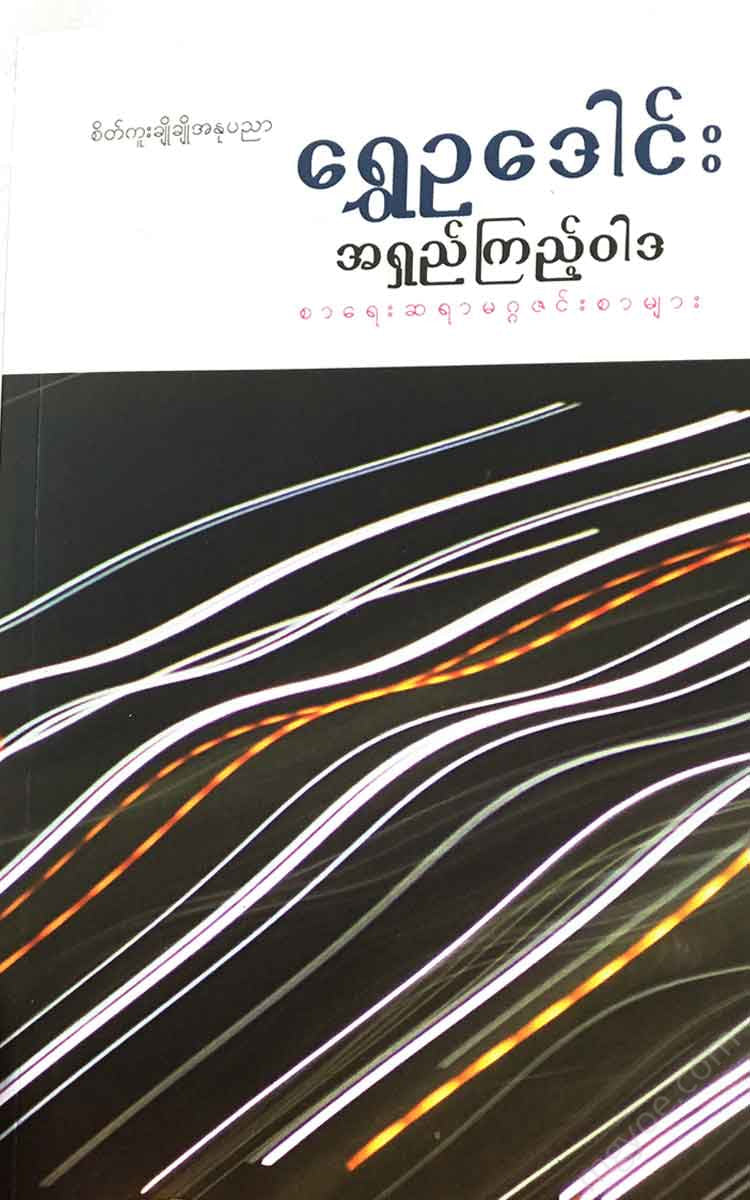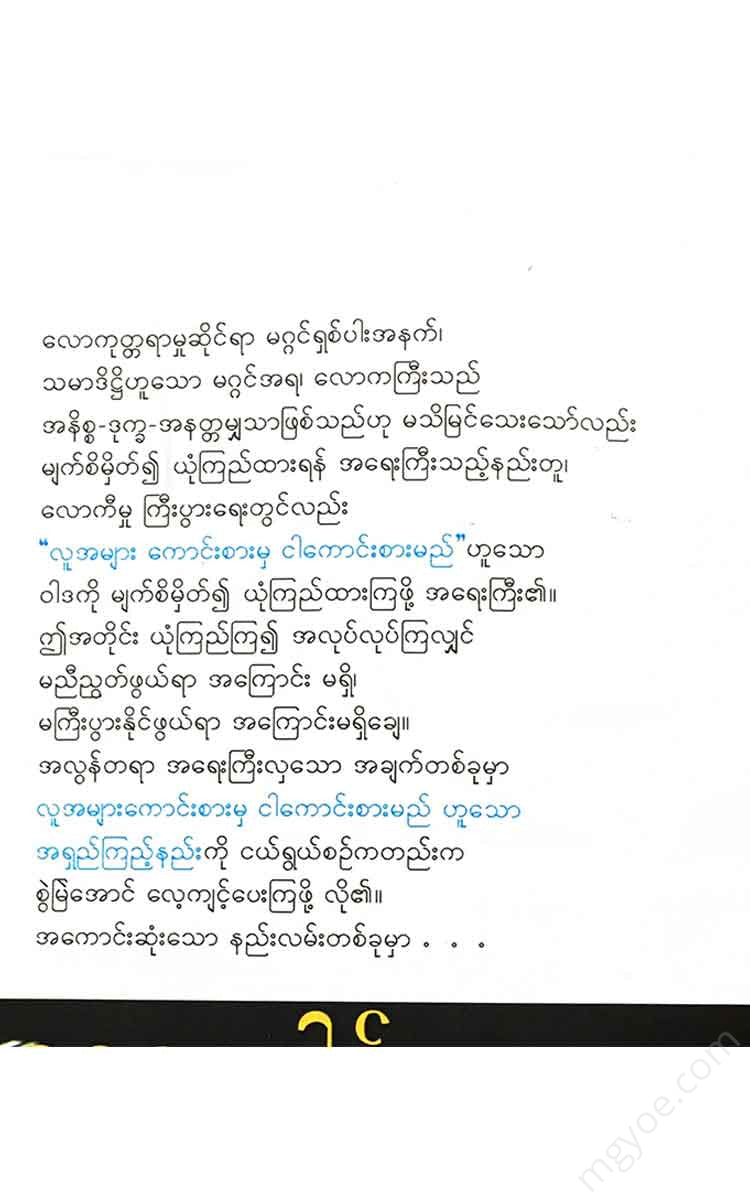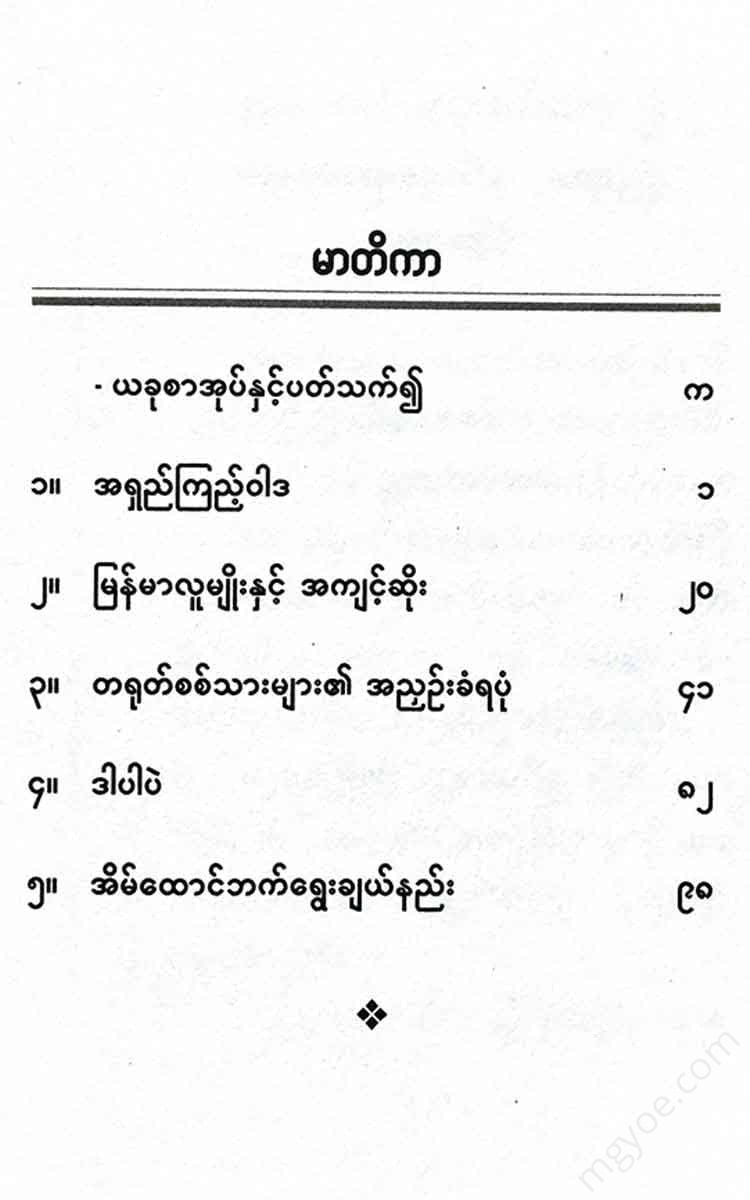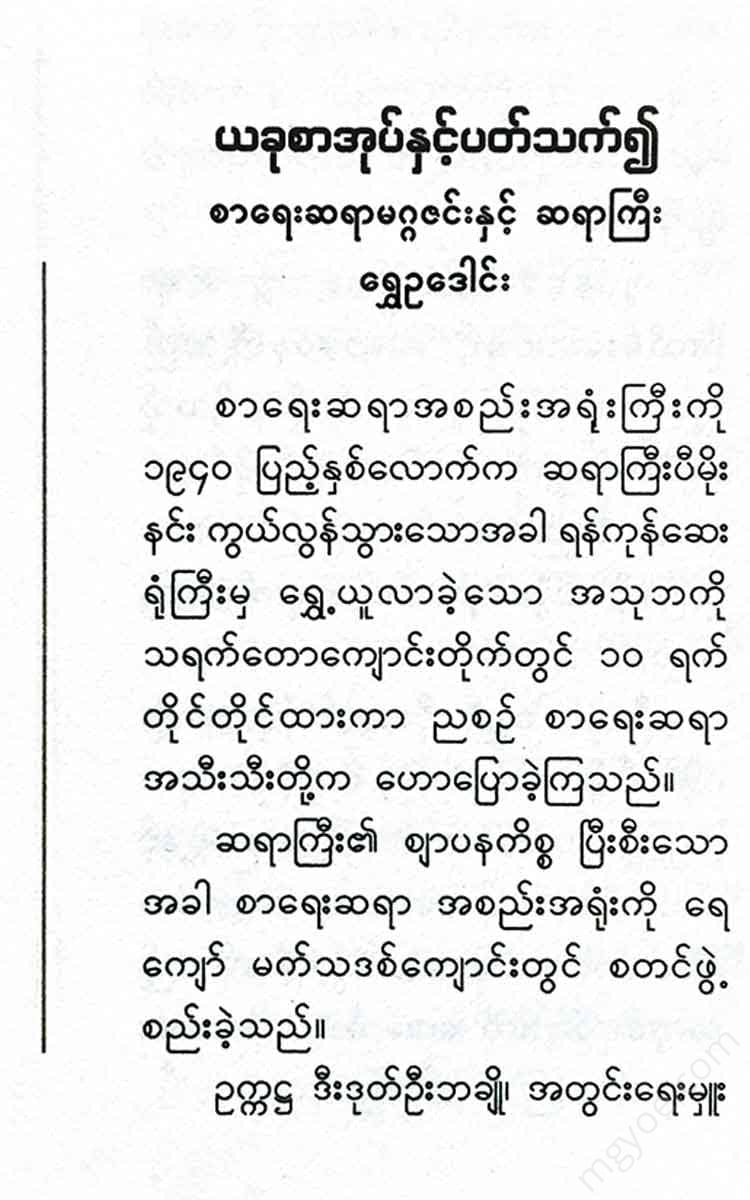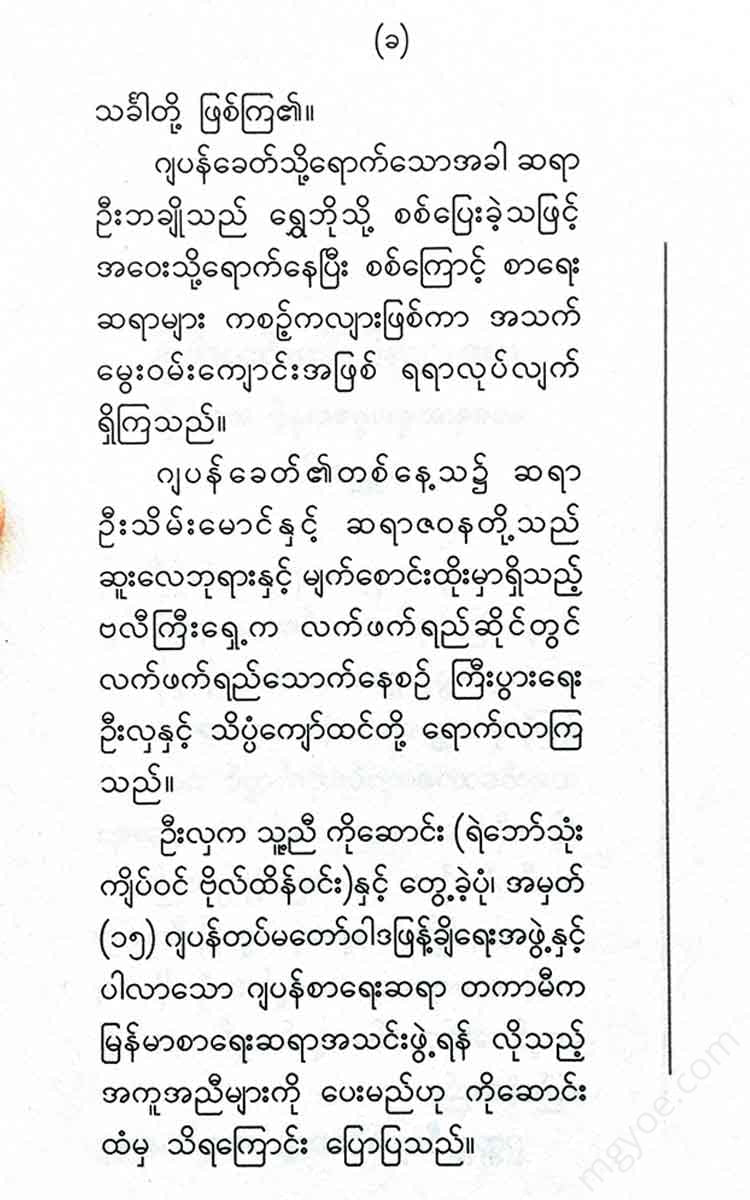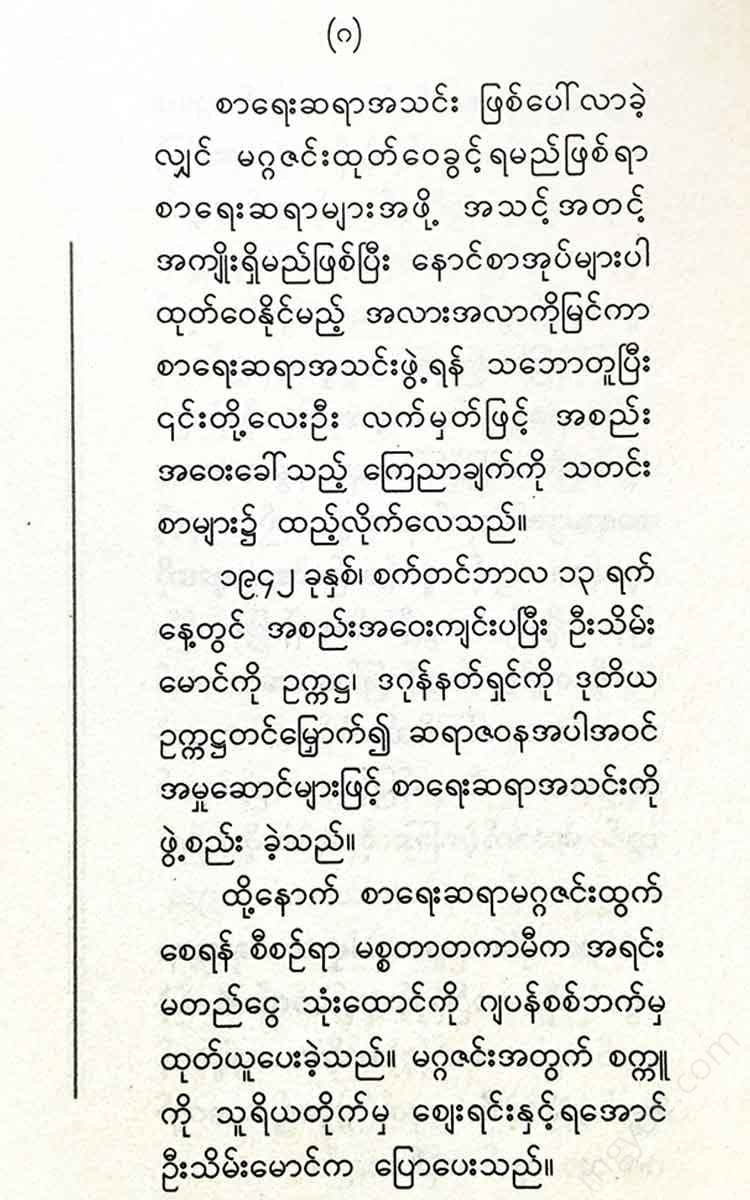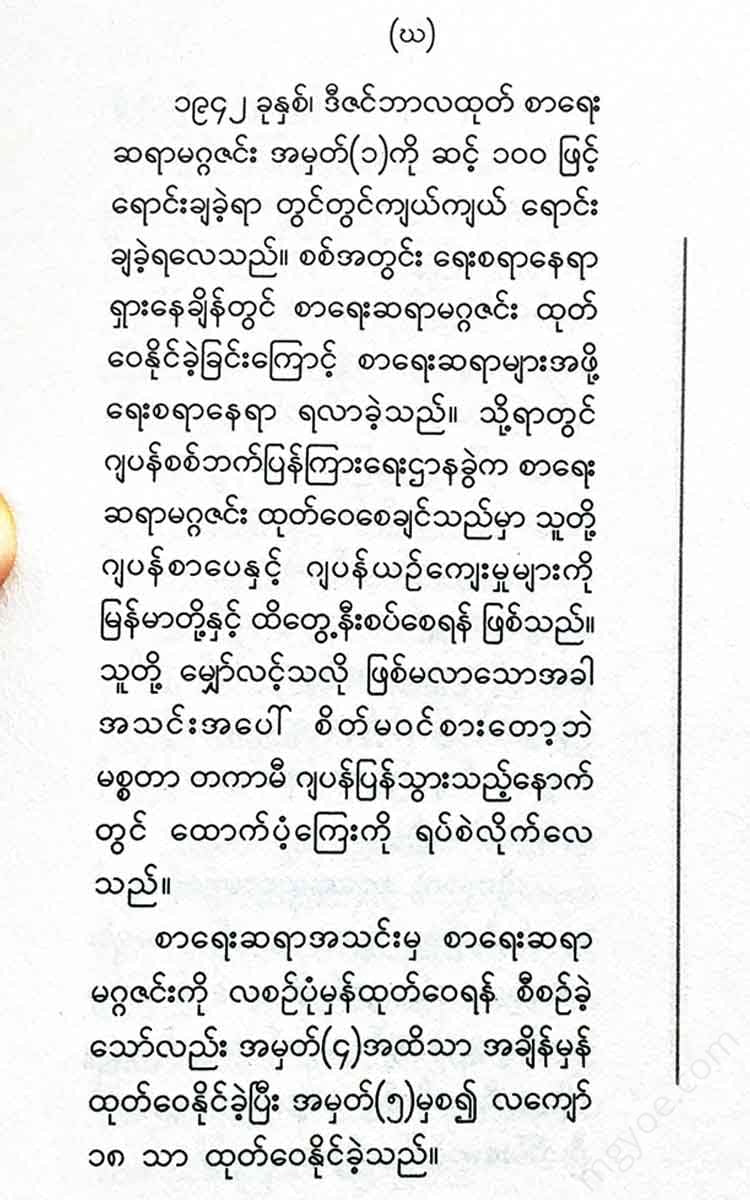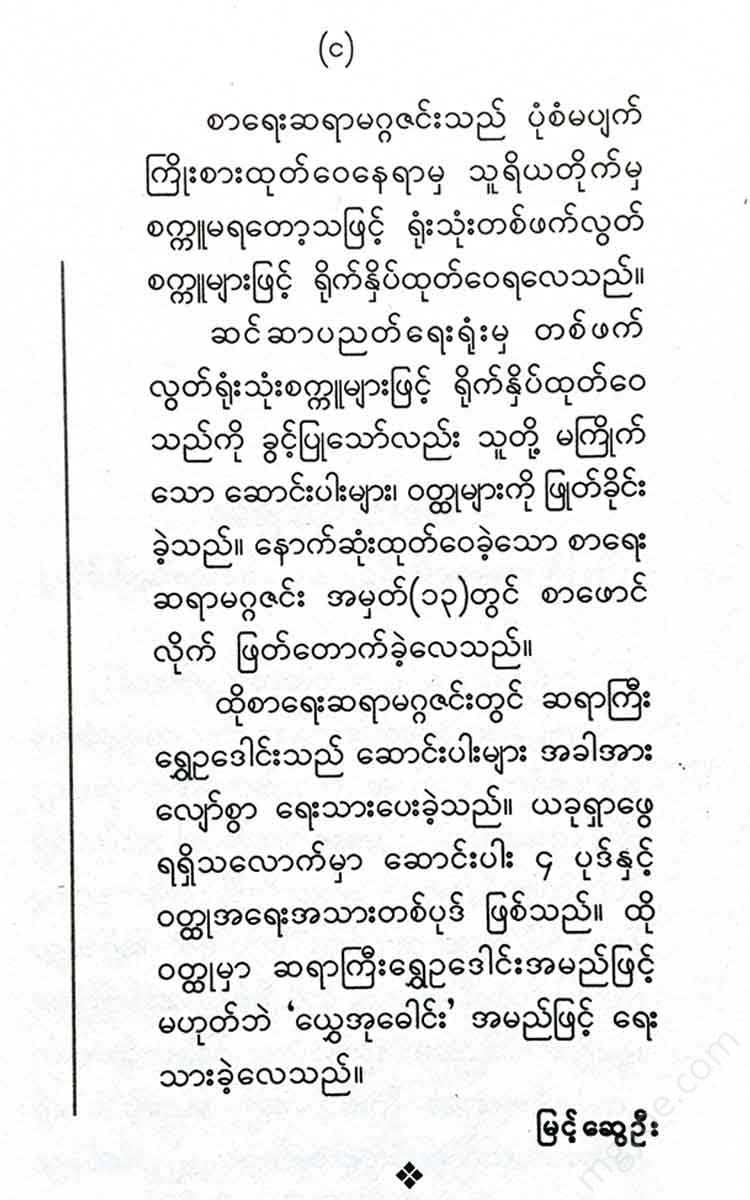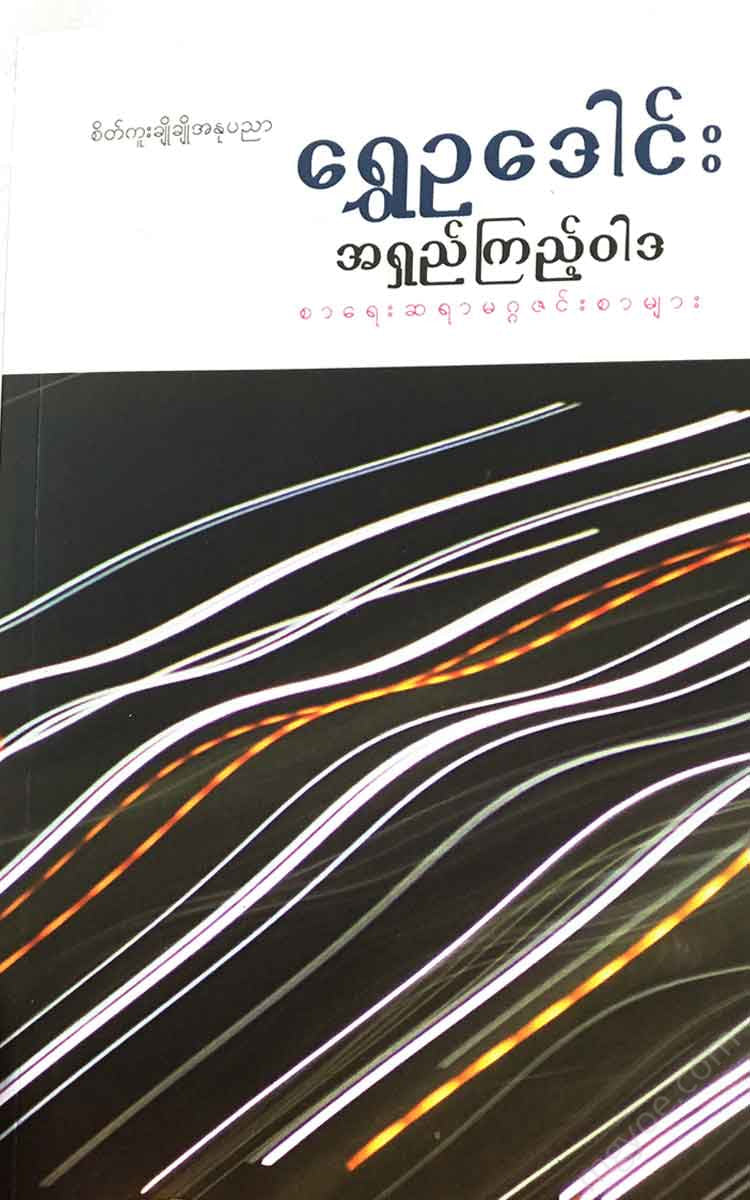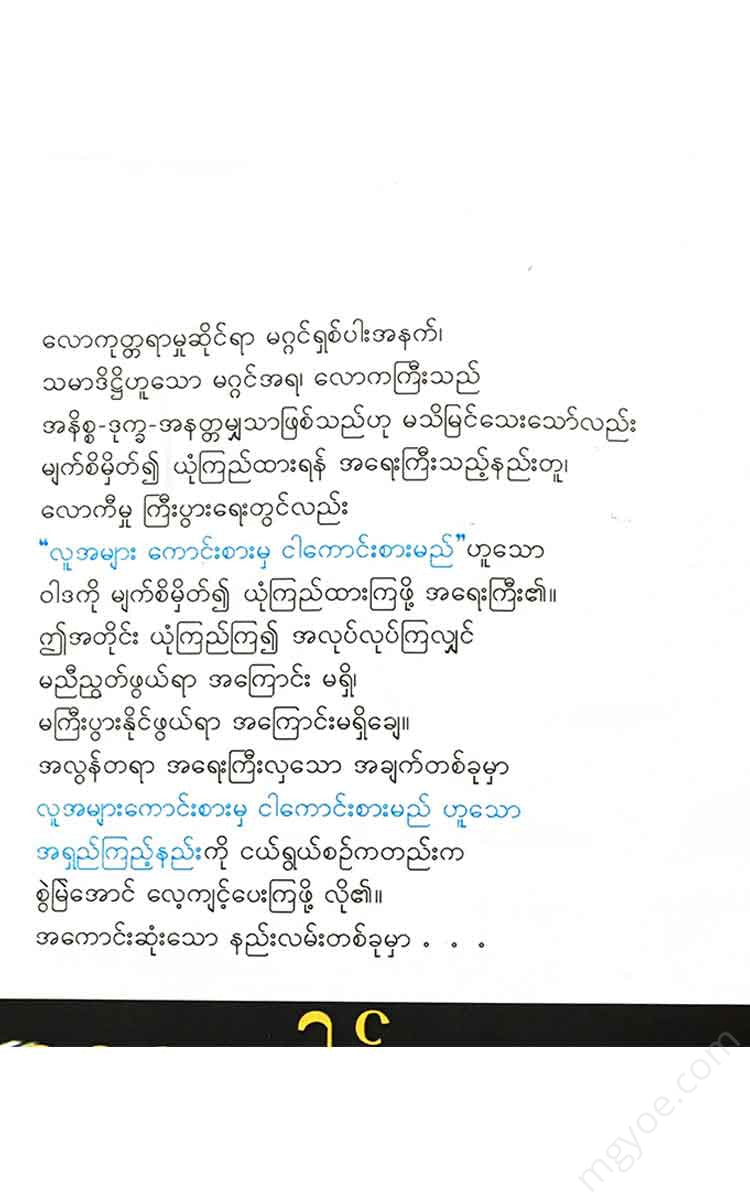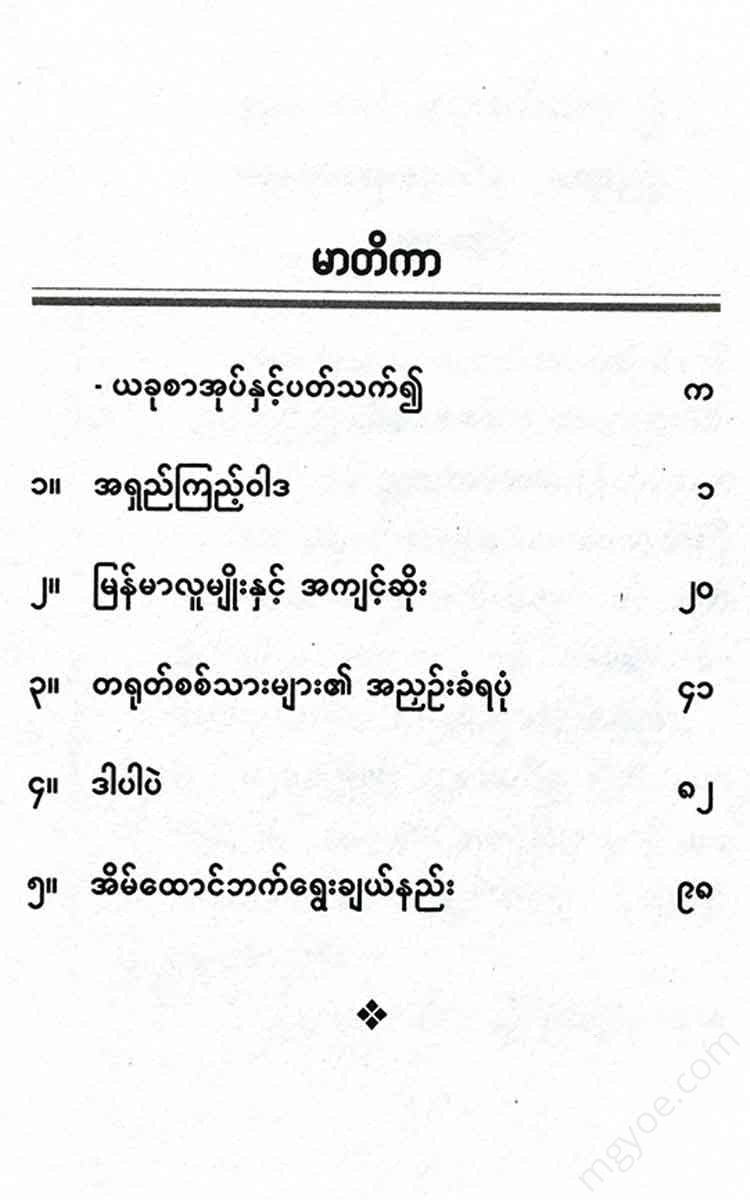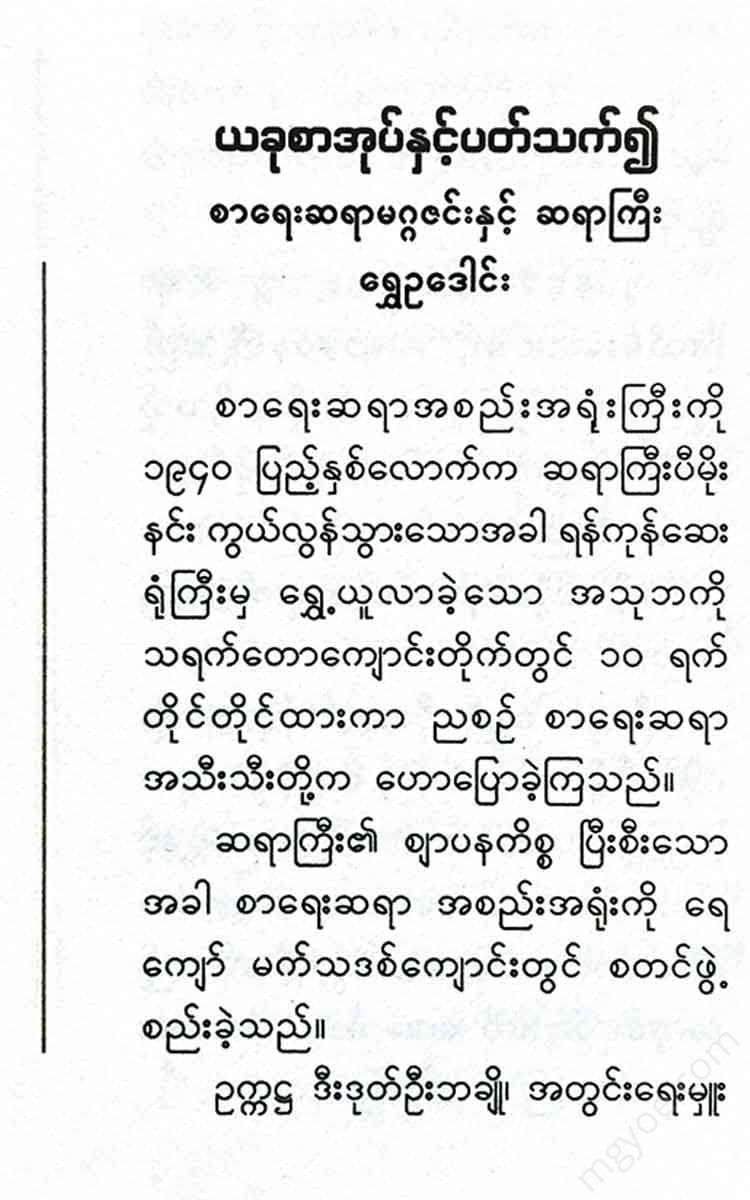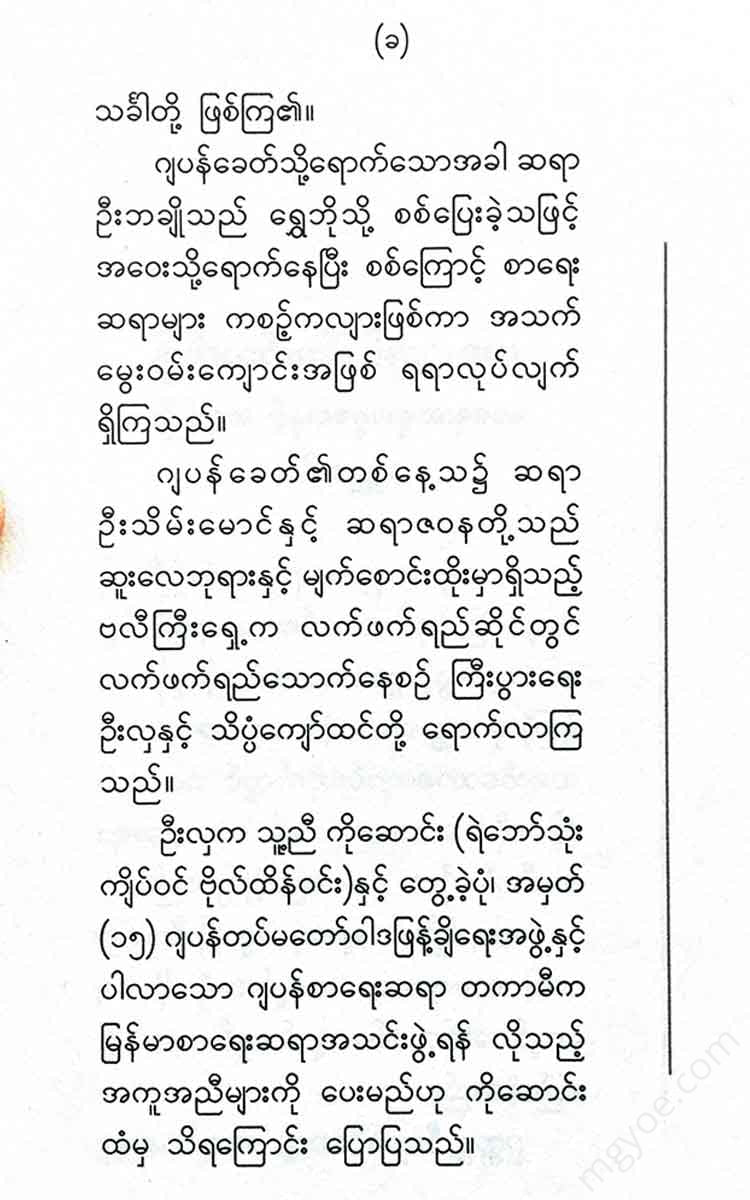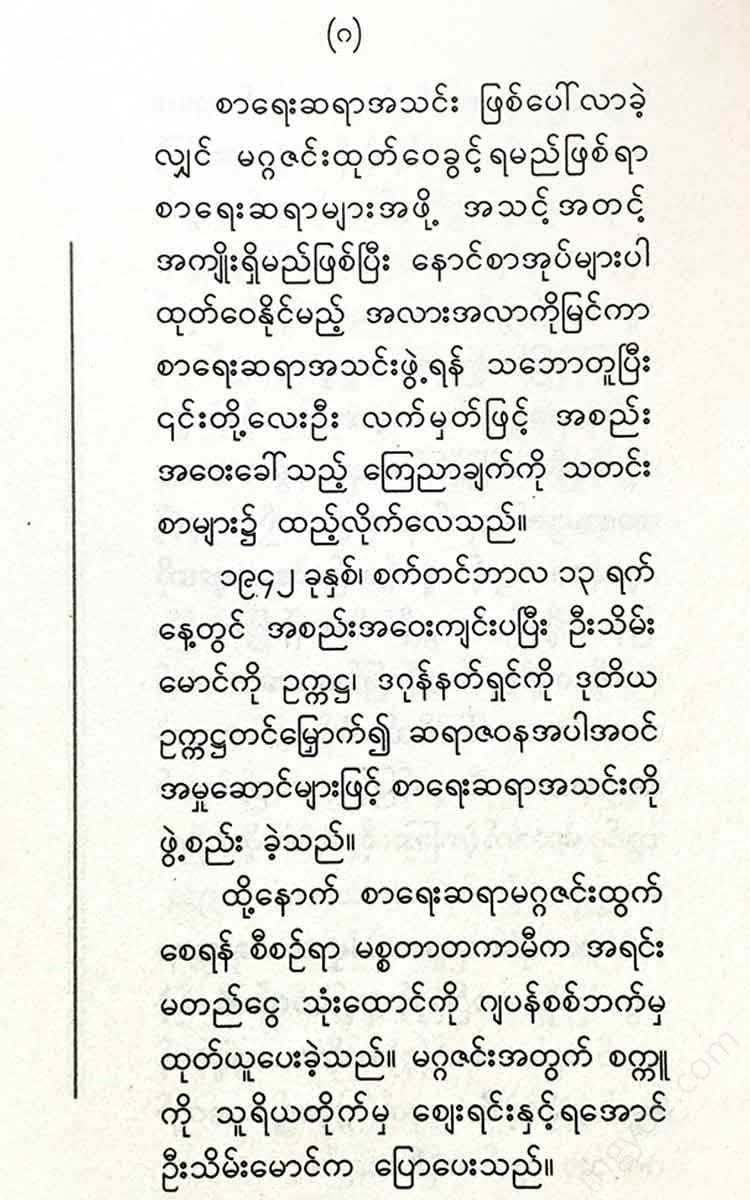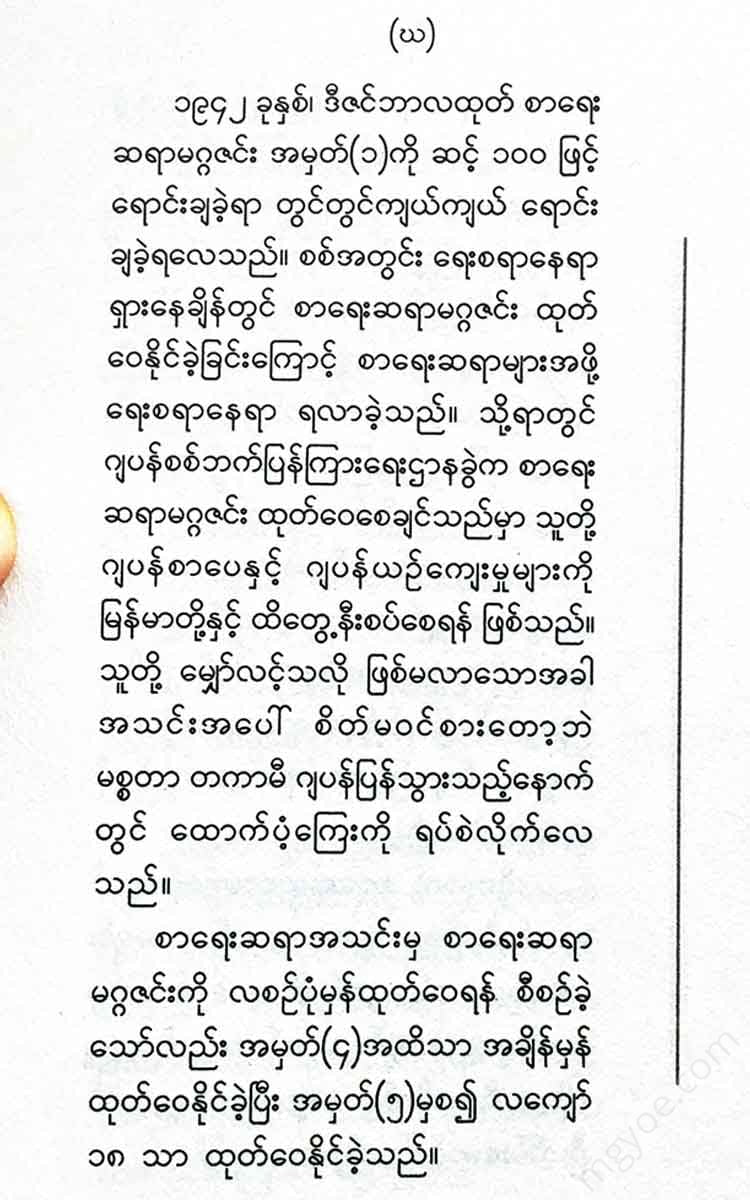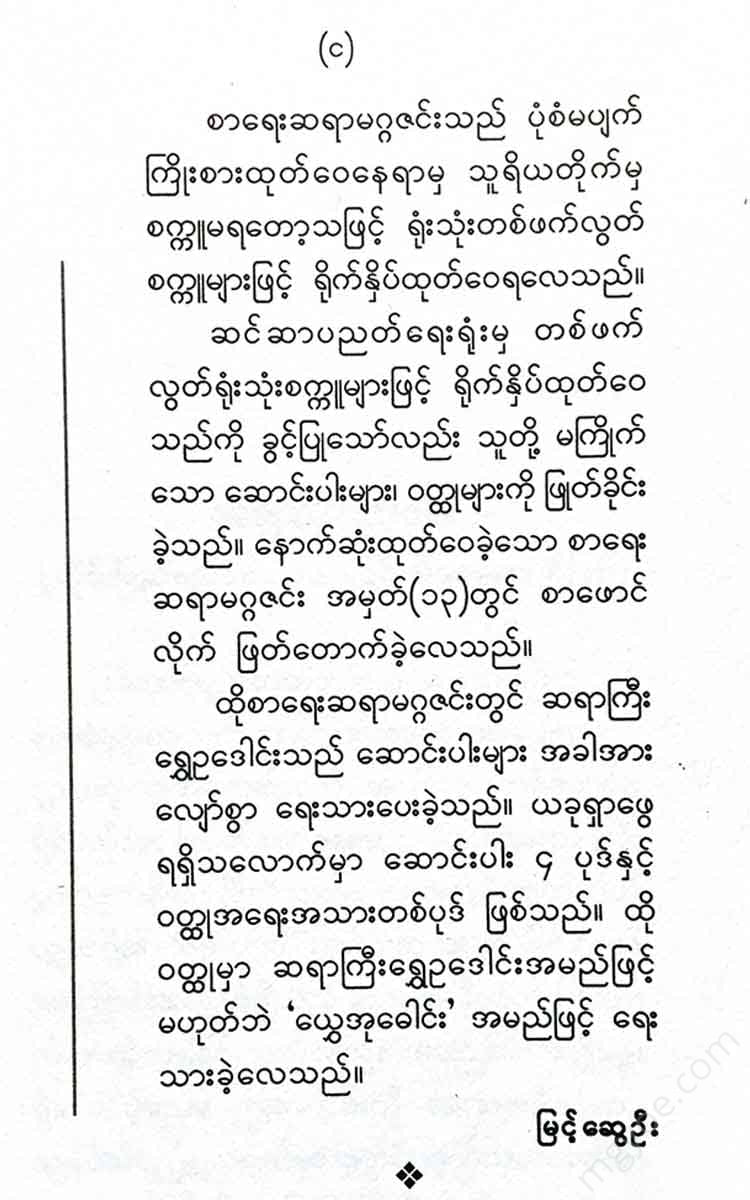စိတ်ကူးချိုချိုစာပေ
Golden Peacock - Long View
Golden Peacock - Long View
Couldn't load pickup availability
Long-termism
(The source of the country's prosperity)
In this world of change, if something happens, there must be a reason, and if it fails, there must be a reason. At this time, the Japanese are growing. The British are declining. Just as there are various reasons for the decline of the British, there must also be various reasons for the growth and development of the Japanese. My intention in writing this paper is not to analyze and list the various reasons for the decline, but to analyze and list the reasons for the growth and development, but I will omit the reasons for the decline of the British and select only the reasons for the growth and development of the Japanese.
The roots are one of the reasons why a tree grows, and among the roots, the source of water is the most important reason. Similarly, there must be various reasons why Japan has grown and prospered, so let's examine and find the true reason, which is similar to the source of water.
When I say that the Japanese have prospered, I do not mean that each individual has prospered, but that the nation has prospered. So if you ask why the Japanese have prospered, I would answer that they have prospered because they are full of energy and diligence. There are other nations that are full of energy and diligence but are not as prosperous as the Japanese. So this answer is not entirely correct. Furthermore, the fact that they are full of energy and diligence is only a virtue that can make an individual prosper, not a virtue that can make a whole nation prosper.
Imagination, integrity, unity
Then, we can say that they thrive because they have a good imagination. There are other peoples who have a good imagination like the Japanese but do not thrive like the Japanese. Imagination is not a quality that can be achieved by all people. It is a quality that only belongs to a minority. Therefore, this answer cannot be the correct answer.
Then we can say that they prospered because they were honest and upright. Anyone with common sense can understand that a country formed by just honest people cannot become the largest and most prosperous country. Therefore, this answer may not be the correct one.
Then we can say that they grow because of unity. This is true to the extent that it is true. However, unity is only a virtue, and we must find out the reason why they are united because of what kind of attitude they have. For example, if a group understands the benefits of unity and strives to be united, but does not understand the reason for unity, their efforts will be like searching for an egg and not finding it.
When we think about the reason for unity, we may first think that tolerance leads to unity. However, does tolerance mean being patient when you see that another member or several members are acting wrongly and unjustly, but you are afraid that unity will be destroyed? If this is said, then the unity will be destroyed, and the unity will be destroyed. Therefore, this kind of tolerance cannot be the right way.
Look long.
If so, what is the reason for unity? What kind of attitude leads to unity? About one eyebrow?
A system that looks beyond the immediate, but rather at the long term, is the true system that can bring about unity.
Let me explain. The nature of living beings is that they tend to look first at their own interests. The difference between humans and animals is that humans manage their affairs by looking ahead to what will benefit them tomorrow. Animals, on the other hand, only see and understand what will benefit them now. There is not much difference in the matter of looking at their own interests. Even among humans, if they have knowledge, they can look ahead as far as they can, and if they have little knowledge, they can blame as far as they can. Some people do not seem to look much further than animals.
However, there are four types of benefits: immediate, delayed, direct, and indirect. To describe these four types in detail, they are (1) immediate direct, (2) delayed, (3) indirect, and indirect.
Among the eight paths of worldly development, according to the path of right view, it is important to blindly believe that the world is nothing but impermanence, suffering, and emptiness, even if you do not see it. Similarly, in worldly development, it is important to blindly believe in the principle that “I will prosper only if the many people prosper.” If you believe and work in this way, there is no reason why you should not be consistent, and there is no reason why you should not prosper. One very important point is that you need to instill the long-term view that “I will prosper only if the many people prosper” from a young age. One of the best ways is to...
About this book, the author magazine and the teacher
Golden Peacock
When the Writers' Union leader Pi Moe Ning passed away in 1940, his body, which had been moved from the Yangon General Hospital, was kept at Thayet Taw Monastery for 10 days, and various writers gave speeches every night.
After the funeral of the teacher was over, the Writers' Association was formed at Ye Kyaw Methodist School.
The chairman is Deedok U Ba Cho and the secretary is Sankha.
When the Japanese era arrived, Sayar U Ba Cho fled to Shwebo, so he was far away. Due to the war, the writers and teachers were scattered and had to make a living by teaching.
One day during the Japanese era, Sayar U Thein Maung and Sayar Zawana were drinking tea at a tea shop in front of the Sule Pagoda and the mosque, when U Hla and Kyaw Htin, the two monks, arrived.
U Hla told how he met his brother Ko Saung (Comrade Htein Win of the 15th Army), and that he learned from Ko Saung that the Japanese writer Takami, who was with the Japanese Army Propaganda Group No. (15), would provide the necessary assistance to form a Burmese Writers' Association.
If a writers' association were formed, it would be allowed to publish a magazine, which would be of some benefit to the writers and would also have the potential to publish books in the future. They agreed to form a writers' association and put a notice calling for a meeting in the newspapers, signed by the four of them.
On September 13, 1942, a meeting was held and the Writers' Association was formed with U Thein Maung as chairman and Dagon Natshin as vice chairman, and Sayar Jawana and other executives.
Then, Mr. Takami arranged for the publication of the Writers' Magazine, and obtained three thousand baht in capital from the Japanese military. U Thein Maung told him to get paper for the magazine from Thuriya Publishing House at a reasonable price.
In December 1942, the first issue of Writers' Magazine was sold for 100 cents and was widely distributed. During the war, when space was scarce, the publication of Writers' Magazine provided a place for writers to write. However, the Japanese Military Information Department wanted Writers' Magazine to be published so that they could bring Japanese literature and culture closer to the Burmese. When this did not happen as they hoped, they lost interest in the association and, after Mr. Takami returned to Japan, the subsidy was terminated.
The Writers' Association planned to publish the Writers' Magazine on a monthly basis, but it was only published on time up to issue (4), and from issue (5) onwards, it was only published for 18 months.
The writer's magazine, which was published in an attempt to maintain its format, was no longer available from Thuriya Publishing House, so it had to be printed on three-sided, blank office paper.
The Censorship Office allowed the publication of the magazine on a free-of-charge paper, but they were forced to remove articles and novels they did not like. The last issue of the Writer's Magazine, No. 13, was cut from the issue.
Shwe U Daung occasionally wrote articles for that writer's magazine. As far as I can find, there are 4 articles and one novel. The novel was not written under the name Shwe U Daung, but under the name "Shwe U Khaung".
Myint Swe Oo
